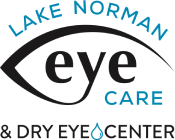As spring blooms and nature awakens from its wintry slumber, allergy season descends upon us with a symphony of sneezes and sniffles. Especially here in Mooresville, NC! For those already grappling with dry eye syndrome, this seasonal onslaught can exacerbate symptoms, leaving eyes feeling gritty, irritated, and downright uncomfortable. Fear not, for amidst the pollen-laden breeze lies a beacon of hope – here are four ways to improve dry eye symptoms this allergy season.

1. Stay Hydrated, Inside and Out
Hydration is key to combating dry eye symptoms, particularly during allergy season when environmental factors can exacerbate moisture loss. Drink plenty of water throughout the day to hydrate your body from within. Additionally, consider using lubricating eye drops or artificial tears to replenish moisture on the ocular surface and alleviate dryness and discomfort.
2. Minimize Exposure to Allergens
While it may be tempting to frolic in the springtime splendor, minimizing exposure to allergens can go a long way in reducing dry eye symptoms. Pay attention to pollen forecasts and try to limit outdoor activities during peak pollen hours. When venturing outdoors, don a pair of wraparound sunglasses to shield your eyes from airborne allergens and minimize irritation.
3. Create an Eye-Friendly Environment
Transform your surroundings into an oasis of ocular comfort by creating an eye-friendly environment. Use air purifiers equipped with HEPA filters to remove allergens from indoor air, reducing the likelihood of triggering dry eye symptoms. Keep windows closed during high pollen counts and consider using a humidifier to maintain optimal indoor humidity levels, preventing excessive evaporation of tears.
4. Practice Good Eye Hygiene
Maintaining good eye hygiene is essential, especially during allergy season when allergens abound. Avoid rubbing your eyes, as this can exacerbate irritation and inflammation. Instead, use a gentle cleanser to remove allergens from your eyelids and lashes, reducing the risk of triggering allergic reactions. Additionally, consider applying a warm compress to your eyes to alleviate discomfort and promote tear production.
Seek Professional Guidance
If dry eye symptoms persist despite your best efforts, don’t hesitate to seek professional guidance from an eye care specialist. Dr. Mason Williams and Dr. Angela Harris at Lake Norman Eye Care are here to help! They can conduct a comprehensive evaluation to determine the underlying cause of your symptoms and recommend personalized treatment options, such as prescription eye drops or specialized therapies, to alleviate discomfort and improve ocular health.



